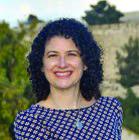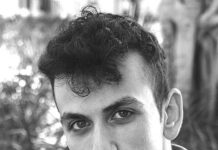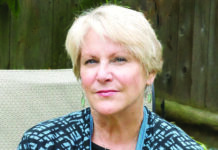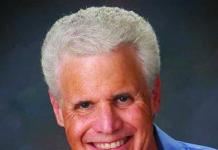
By Rabbi Stacy Rigler
“Here we are, we’ve come so far. Look up and down, breathe in, breathe out. Now we know this place is holy, and now we see that we are holy … Mah Norah Hamakom Hazeh. How Awesome is this Place.”
With these words, Foundation for Jewish Camp’s Cornerstone Fellowship 2021 theme song kicked off the summer season, reminding us of what the past 22 months have proven. As Philadelphia songwriter and cornerstone educator Chana Rothman described, there is a profound holiness found within the Jewish summer camp community. This kedusha (holiness) streamed out over Zoom reunions, virtual fundraisers, Instagram stories and news feeds for 22 months. Now here we are, T-shirts printed, clothing labeled, staff trained and the sounds of summer surround us. While there may be masks, hand sanitizer and rapid tests, once again our community is fostering friendships, inspiring creativity, pushing boundaries and cultivating kindness. Though adjustments have been made, and safety scenarios planned out, the core of camp remains. Our chanachim (campers) are bringing in Shabbat, singing zmirot (Jewish songs), dancing to Israeli music and cultivating a sukkat shalom, a Jewish sheltering presence.
Last year, the FJC Cornerstone song, written by Rabbi Noam Katz was called “Belong.” The first chorus states, “You are here, you are whole, you belong.” This has always been our mantra — at camp we want to embrace your whole self. Since that song was written, we have learned that we can all do more to foster a culture of belonging. We know the campers who walk through our gates aren’t the same as when they leave us. We know we, as camp professionals, can do more to help our camp staff see beyond the masks they are wearing to nurture their souls. In the past 18 months, our camp community has doubled down on prioritizing the work of learning more about our individual campers in order to serve them better.
FJC has seen increased interest in our Yashar Initiative and counselor internship to support campers with disabilities, recruitment efforts around our Russian-speaking Jewish community and recently a partnership with Keshet to help camps create LGBTQ+ affirming spaces. In the past year camping movements — like URJ, Ramah and the Association of Independent Jewish Camps — have all provided racial equity trainings for their camp leadership teams, and FJC has funded two camp innovation projects on racial equity, expanded the New York-area DEI Coaching Project for Day Camps and committed to more research about the experience of Jews of color in our field. Amid the COVID-19 protocols, the arrival procedures and the cleaning supplies, camp leadership has continued to prioritize the people that we serve first, treating their physical and emotional safety with equal importance and listening more to the intersectionality in our community.
As camps open, there is much to celebrate — both as a broader Jewish community and with the unique identities that our campers bring. We are not only celebrating campers arriving at camp, we are celebrating who they are and how they are showing up. This month, as camps open their gates, some may feature Pride celebrations. Raising the Pride flag is now a ritualized part of opening camp in June. Our camps are amplifying LGBTQ+ voices and sharing in Pride Shabbat. Pride month reminds us that being allies and leaders means more than community education and policy change; it means standing together in celebration. As Noam wrote in his song, “Ain’t no one like you or me, but for us the world was created and we, we belong.”
The past 18 months also gave us time to reflect on who our communities are, and to recreate rituals, to ensure our camp community celebrations are inclusive of multiple ethnic and cultural identities. The opportunity to celebrate the fact that our Jewish community is not a monolith, to see and honor our diversity and resilience, to share stories and build relationships was a focus of planning for summer 2021. As Juneteenth was declared a national holiday, we heard stories of Juneteenth Shabbat, personal stories shared in camp communities and new traditions formed. We honor those individuals who are creating culture change.
Last year at this time, we lifted up the heroes of Jewish day camps that opened and kept the heartbeat of our Jewish community flowing. We mourned the inability to gather and create community in the ways we had known for summers before. Though we were not together, our Cornerstone song reminded us that “near or far, camp was the place where we all could be strong and belong.”
Now, I write this reflection from the grounds of URJ Camp Harlam in Kunkletown, where hundreds of campers were welcomed home this week. As a member of the FJC team, I know the challenges that the larger camp community faced this past year were immense. I also know that despite those challenges, camp leadership continued to be laser-focused on the campers they served, and the staff they employ. They asked hard questions about how they could strive to make changes to open their gates as wide as possible.
Looking around the chader ochel (dining hall), it’s almost unbelievable to think about the preparations made to ensure that every child is celebrated for being their most authentic and best self. These are the stories never told, the work that makes the magic possible. I can’t help but sing the closing words to the Cornerstone 2021 song: “This time, this place, hard things, we face. This home, we’ve known, these seeds we’ve sown. … “Mah Norah HaMakom Hazeh — How Awesome is this place. I’ll meet you there.” l
Rabbi Stacy Rigler is the senior program manager of Jewish Education at Foundation for Jewish Camp and Jewish life adviser and camp council member of URJ Camp Harlam. She previously served as a rabbi educator at Reform Congregation Keneseth Israel in Elkins Park.






